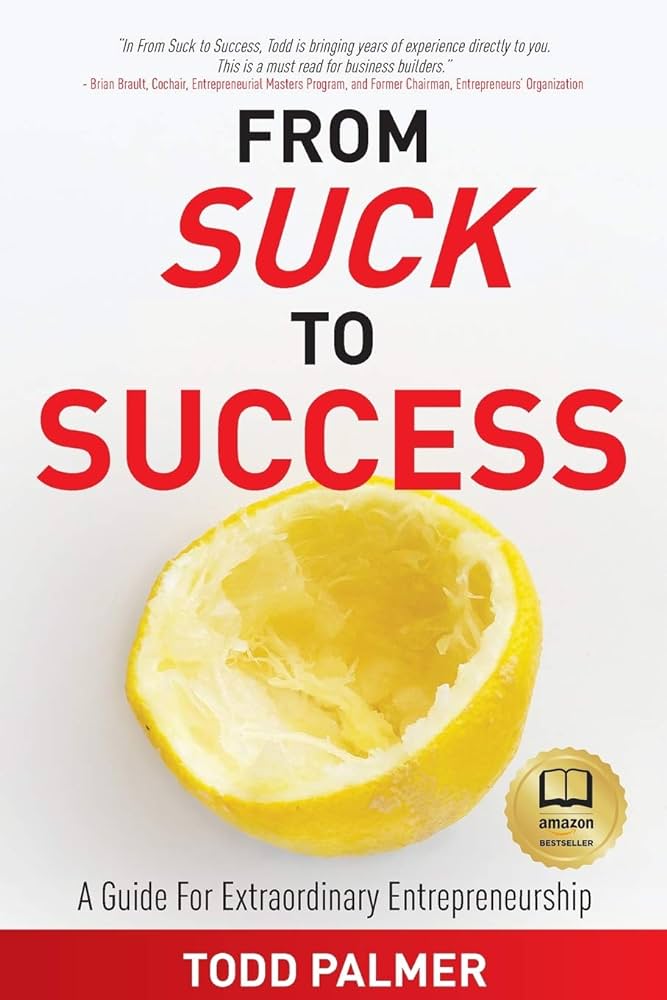High Achievers Don’t Think They’re Enough-and that belief drives their success… until it drives their suffering.
This is a chronic problem I have seen in boardrooms, at EO Forum retreats, and even in myself:
The higher someone climbs, the louder the inner voice gets that whispers,
“You don’t belong here.”
“You’re not doing enough.”
“You should be further along by now.”
It doesn’t matter whether they’re leading a $5 million company or a $50 million one.
Behind all that achievement, there’s often a quiet, hidden belief:
“I’m still not enough.”
Where It Begins
Most high achievers didn’t start with confidence — they started with chaos.
Psychologist Dr. Paul Hokemeyer, author of Fragile Power: Why Having Everything Is Never Enough, has spent years studying high-performing leaders and entrepreneurs. He found that many of them share a common thread: trauma.
Not necessarily the big, obvious kind — but subtle, chronic experiences of disconnection, loss, or fear growing up.
Maybe it was a parent who left, a home where love was conditional, or a constant pressure to perform.
A study highlighted by The Wall Street Journal and Inc. found that roughly 75% of high achievers experienced significant adversity in childhood — poverty, parental loss, or emotional neglect.
That pain becomes rocket fuel.
Achievement becomes the strategy to stay safe.
The story we learn early is: “If I do more, achieve more, earn more — I’ll finally be okay.”
And for a while, it works.
Until it doesn’t.
As Dr. Gabor Maté explains,
“Trauma isn’t what happens to you. It’s what happens inside you as a result of what happened to you.”
High achievers build empires not to feel powerful — but to avoid feeling powerless
How It Shows Up in Business
That old survival strategy doesn’t vanish with success.
It just hides behind nicer cars, bigger offices, and more complex KPIs.
1. Moving the Goalposts
Every time a leader hits a milestone — $5M, $10M, $25M — the finish line moves.
“I’ll finally relax when we hit ___.”
But the target keeps running faster than they can.
Psychologist Tal Ben-Shahar calls this the arrival fallacy — the false belief that happiness waits at the next destination.
But when the achievement high fades, we don’t celebrate — we panic.
Because if we stop striving… who are we?
As Brené Brown puts it,
“If you’re constantly hustling for your worth, you’ll never feel whole.”
2. Tying Worth to Money
Money is measurable.
Impact, love, or fulfillment? Not so much.
That’s why so many entrepreneurs anchor their identity to revenue.
If the numbers go up — *I’m winning.
*If they dip — I’m failing as a person.
Behavioral economist Dan Ariely calls this the measurability trap — the human bias to overvalue what can be quantified and undervalue what can’t.
We end up measuring our self-worth with a balance sheet — and wonder why it never balances.
Revenue reflects performance.
It does not reflect value.
3. Playing Small — or Playing Safe
Here’s the paradox:
The people who most fear they’re not enough often hold themselves back from being too much.
They avoid hiring A-players who might outshine them.
They choose clients who “need” them instead of challenge them.
They micromanage because control feels safer than trust.
Cognitive psychology tells us that self-limiting beliefs aren’t weakness — they’re protection.
The brain equates change with danger.
It whispers, “Stay small, stay safe,” not because we can’t grow — but because growth feels like a threat.
When we finally name that pattern, we can lead from awareness instead of anxiety.
The Cost of Never Feeling Enough
When your leadership runs on inadequacy, no amount of success fills the tank.
You’ll build a company that looks thriving but feels hollow.
You’ll achieve more but enjoy less.
You’ll start wondering why the person with everything doesn’t feel like someone who has enough.
I know because I’ve been there.
When my staffing company made the Inc. 5000 list for the sixth time, everyone celebrated — except me.
I felt… empty.
Like I’d climbed a mountain that never ended.
That’s when I realized:
I was chasing external success to fix an internal wound.
And that wound couldn’t be healed by another zero on the P&L.
The Shift: From Achievement to Enoughness
The antidote to “never enough” isn’t more achievement — it’s awareness.
Here’s where the work begins:
1. Acknowledge your origin story.
That drive you carry? It once kept you safe.
Now it might be keeping you stuck.
Recognize it without shame — that’s how healing starts.
2. Redefine what success means.
If money is the only metric, you’ll always be broke in peace and joy.
Add new scoreboards:
Connection. Creativity. Stillness. Impact. Health.
3. Interrupt the story loop
When your inner critic says, “I’m not enough,” pause and ask,
“Whose voice is this? What age was I when I first heard it?”
That question often cracks the code on where the belief began.
4. Build mirrors, not fans.
Fans cheer your highlight reel.
Mirrors reflect your truth.
Research from the Center for Creative Leadership found that 75% of executive derailments come from lack of feedback or self-awareness.
Surround yourself with truth-tellers who remind you that you are not your results.
5. Practice self-compassion.
Dr. Kristin Neff’s research shows that self-compassion — not self-criticism — leads to greater resilience and sustainable success.
High achievers often treat others with empathy and themselves with contempt.
Flip that script.
The Freedom of Enough
At some point, every entrepreneur hits a moment where achievement stops working as anesthesia.
That’s when the real growth begins.
When you stop chasing worth and start leading from it.
When you stop trying to prove your value and start trusting it.
Here’s your reflection for this week:
What are you still trying to prove — and to whom?
And what would change if you believed, just for today, that you were already enough?
Because the moment you stop needing to earn your worth,
You start leading from it.




